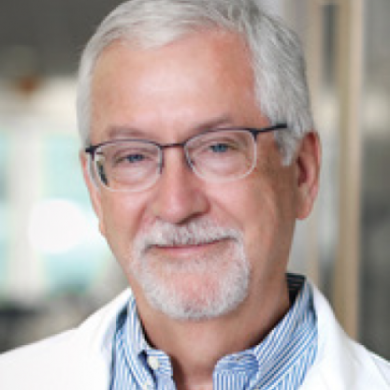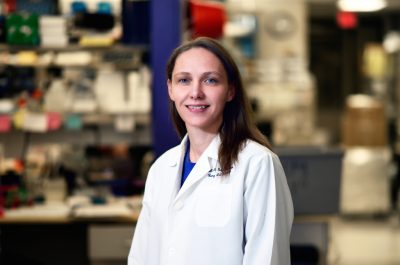About Us
Our mission and leadership
Our Mission
The Tatton Brown Rahman Syndrome Community aims to support all families affected by TBRS and advance research toward interventions.
Our Values
The Tatton Brown Rahman Syndrome Community is committed to developing a supportive, inclusive, and collaborative network of families, clinicians, researchers, and other stakeholders. We serve the patient above all else.
Our Goals
- To create a comforting, inclusive community for diagnosed individuals and their families to connect, support each other, and share information.
- To coordinate and support research on this newly identified, rare syndrome and identify treatments.
- To educate the greater community and raise awareness of TBRS.
- To manage a global patient registry for individuals diagnosed with TBRS.
TBRS Community Board of Directors

Jill Kiernan
Executive Director
Jill Kiernan
Jill Montgomery Kiernan is the Executive Director and founder of the TBRS Community. Her daughter, Aevary, was one of the participants in The Childhood Overgrowth Study that first identified TBRS. Having gone many years without knowing what caused Aevary’s delays and challenges, learning of this breakthrough discovery changed everything. Fueled by a mother’s love and the excitement of finally having a “home” in TBRS, Jill formed The TBRS Community with the mission of supporting families affected by TBRS and furthering research into this rare disease. Jill coordinates The TBRS Community Annual Conferences and works to facilitate communication and partnerships with researchers, doctors, educators, and families. She owns her own business providing services to individuals with disabilities and has worked with this population in varying capacities for more than 20 years. Jill lives with her husband Joe, son Aiden, and daughter Aevary in upstate New York. In her free time, she enjoys being with her family, getting out in nature walking, hiking, and kayaking.

Kacee Richter
President
Kacee Richter
Kacee Richter is the President and an active member within the TBRS Community since 2018. She also serves a member of the Events, Education and Outreach, Fundraising, and TBRS Cares committees. Kacee and her husband Bobby, who starting dating in college at Texas A&M, have two gorgeous boys, Lucas and Owen. Lucas was diagnosed with TBRS at the age of three, and since then her mission has been to assist in anyway possible to find a cure for him and their new TBRS family. She currently manages the catering department of her parents’ restaurant, Tin Roof BBQ, in Humble, Texas, which has hosted a number of fundraisers for TBRS Community. Before having the opportunity to join the family business, she had a career of 10 years at a major oilfield service company in supply chain and inventory management. Their family enjoys playing outside and traveling.

Kerry Grens
Vice President
Kerry Grens
I am the mother of three amazing children, the youngest of whom was diagnosed with TBRS in 2019. In addition to serving on the medical and scientific advisory committees of the TBRS Community, I am a member of the Education & Outreach committee, writing materials for the website, reaching out to scientists, and promoting the organization’s research projects. For nearly two decades, I have been a professional science communicator. I work at Washington University School of Medicine as the communications manager for the Department of Neuroscience. Previously, I was a senior editor and the news director at The Scientist magazine, a stringer for Reuters Health, the senior health and science reporter for WHYY (the NPR and PBS affiliate in Philadelphia), and the health and science reporter for New Hampshire Public Radio. I have a bachelor’s in biology from Loyola University Chicago and a master’s in biological sciences from Stanford University. My husband and I live with our kids and pets in Webster Groves, Missouri, and we try to spend as much time in nature as we can.

Jennifer York
Secretary
Jennifer York-Isaacs
I am a 3rd grade teacher from Waterloo, Illinois. I have a teenage son who was diagnosed with TBRS in April of 2015. That same year, I joined the TBRS Community as Secretary. As our community has expanded into a much larger foundation, I have also had the privilege to be on our Fundraising, Education and Outreach, and Event Planning committees. My family is fortunate to have been able to attend both of our TBRS conferences, participate in and create several fundraisers, provide samples for ongoing TBRS/DNMT3A research, and remain very active members in all areas pertaining to TBRS. I feel so blessed to be a part of this wonderful, loving, and supportive community!

Tom Watson
Treasurer
Tom Watson
I am a seasoned financial professional and have dedicated my career to working with mission-driven not-for-profit organizations that provide significant benefits to individuals who are in need. I have more than 20 years of experience working to create opportunities for those in this workspace. I joined The TBRS Community to continue this work and provide financial guidance to this organization so that it can fulfill its mission and provide much needed services to those diagnosed with this disorder. With a degree in accounting from Roger Williams University and a master’s in business administration from Iona College, and more than 20 years in developing and supporting not-for-profit entities in the state of New York, I am privileged to lend my expertise to The TBRS Community.

Erin Rooker
Marketing Director
Erin Rooker
I am a TBRS mom – in 2018 my daughter Morgan was diagnosed at the age of six. After first attending the Family Conference in 2019, our family was blown away at the support and friendships found within The TBRS Community. It makes me proud to serve as the Marketing Director and Events Committee Chair. I have also been a volunteer on the Education & Outreach and TBRS Cares committees. Professionally, I have worked in the Engineering and Construction Industry for the last 20 years doing sales and marketing for leading global firms. Finding this community has been such a blessing for our entire family, and I am excited to lend my personal expertise to help further its goals and initiatives. In my spare time I love doing yoga, camping, and spending time at the beach with my family.
Scientific and Medical Advisory Committee

I am committed to working with families so we better understand TBRS and to ensure the very best care is provided for children and adults with TBRS across the world.
Medical Advisory Board
Dr. Kate Tatton Brown

My pledge to families is to pursue every research angle we can to find treatments for TBRS.
Medical Advisory Board
Kerry Grens

Medical Advisory Board
Timothy Ley

Our practice has a soft spot for children with special needs and complex health challenges.
Medical Advisory Board
Dr. Jopeph T. Malak

Medical Advisory Board
Dr. Marwan Shinawi
Dr. Marwan Shinawi is a professor of pediatrics at Washington University School of Medicine. He is Board certified in Clinical Genetics and Medical Biochemical Genetics and serves as the program director of the Combined Pediatrics Genetics Residency and the Medical Biochemical Genetics Fellowship.
Dr. Shinawi received his BA from the Hebrew University in Jerusalem, his MD degree from the Technion in Haifa, Israel, and performed his Pediatrics Residency at Rambam Medical Center. He completed fellowships in Clinical Genetics and Medical Biochemical Genetics at Baylor College of Medicine in Houston, TX. Dr. Shinawi joined the faculty at Baylor in 2005 and Washington University School of Medicine in 2009.
Dr. Shinawi’s special interests are in genomic medicine and the genetic basis of neurodevelopmental disorders. He was involved in the discovery and characterization of multiple genetic syndromes. With his clinical and laboratory research experiences, Dr. Shinawi has been the primary author on many publications. Dr. Shinawi has a key role in establishing pioneering specialty clinics at Washington University including the exome and the cancer predisposition clinics.

Our journey might be long, but together, families and researchers can make progress to advance our understanding of the symptoms of TBRS and identify therapeutic avenues.
Medical Advisory Board
Dr. Ayala Tovy
Dr. Ayala Tovy is a Principal Scientist lab head at Novartis research Institute (NIBR) and adjunct assistant professor at Baylor College of Medicine. Her extensive research has focused on stem cells, human development, and cancer biology. Recently, her studies have revolved around developmental disorders related to DNA Methyltransferase 3 (DNMT3A), including Tatton Brown Rahman Syndrome (TBRS). Specifically, Dr. Tovy has designed studies enrolling individuals with TBRS to address key questions regarding the role of DNMT3A in regulating hematopoiesis and stem cell growth.
Dr. Tovy received her BSc and MSc from the Tel Aviv University in Israel, and her PhD from the Technion Institute of Technology in Israel. She began her postdoctoral research at the Weizmann Institute of Science before transitioning to her current position. She is actively pursuing a career in academic research.

Medical Advisory Board
Dr. Harrison Gabel

Medical Advisory Board
Dr. Rachel Rau

Medical Advisory Board
Dr. William Gibson

Medical Advisory Board
Dr. Serge McGraw
Dr. Serge McGraw is an Associate Professor in the Department of Obstetrics and Gynecology at the Université de Montréal (Montréal, Canada). He completed a postdoctoral fellowship at McGill University (Montreal) where he developed an expertise in developmental biology and epigenetics. His principal research interests are focused on the detrimental developmental outcomes caused by epigenetic instabilities arising from alterations in DNA methylation profiles during embryogenesis and brain development. His research aims at understanding how perturbations in the epigenetic program appear following alterations in the machinery controlling DNA methylation, how they impact other epigenetic modifications and how this can lead to neurodevelopmental disorders. By combining TBRS-patient derived in vitro stem cell models, as well as in vivo mouse models, with multi-omics sequencing approaches, his laboratory aims at understanding how dysfunction in the DNMT3A enzyme during early development leads to gene expression errors and how these perturbations impede the establishment of regulatory networks required for lineage specification and commitment during development, ultimately driving the occurrence of neurodevelopmental disorders.